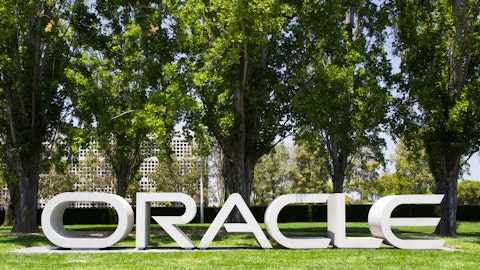
Few anticipated that Gurhan Kiziloz’s Nexus International would rise so rapidly through the global gaming ranks. Yet by the first half of 2025, the privately held and entirely self-funded group reported revenues of $546 million, more than double the figure for the same period last year and already exceeding its 2024 total. The company is now projected to enter the world’s top 100 gaming brands by the end of the year, an achievement that has placed the London-based operator firmly on the radar of analysts and competitors alike.
The scale and speed of Nexus’s expansion illustrate a broader shift within the gaming industry. As markets become more digital and fragmented, success increasingly depends on agility, technological sophistication, and the ability to act ahead of regulation. Where many legacy operators rely on layers of oversight and investor input, Nexus has built momentum through direct control and operational precision. Its founder, Gurhan Kiziloz, a Turkish-British entrepreneur with a background in fintech, has applied lessons from his earlier ventures to construct a lean, multi-brand gaming group that prioritises execution and responsiveness.
Kiziloz’s approach departs from industry convention. Instead of raising external capital, Nexus has relied entirely on its own resources, reinvesting profits to fund growth. This independence has given the company unusual flexibility, decisions that might take months elsewhere can be made within days. The result is a structure that blends the speed of a start-up with the financial maturity of a mid-cap operator. The company’s ability to scale so effectively without external backing has prompted some analysts to describe it as one of the most efficient gaming businesses of its generation.
At the heart of that efficiency lies a simple but well-executed strategy. Rather than concentrating its efforts on a single brand, Nexus operates a portfolio of platforms tailored to different markets and player profiles. Among them, Megaposta, its flagship in Brazil, has been a major growth driver. Early regulatory readiness in Latin America’s largest gaming market gave Nexus a first-mover advantage, allowing it to establish trust and infrastructure before larger rivals entered. Other brands within the group address distinct regional and thematic niches, supported by a shared backbone of payments, identity verification, and compliance systems. This modular architecture enables the company to launch new ventures rapidly while maintaining consistency across operations.
The growth figures reflect the strength of that model. After generating around $400 million in 2024, Nexus surpassed that number in just six months of 2025. Forecasts now place its full-year revenue between $1.1 billion and $1.4 billion, a scale comparable to long-established listed operators. The numbers are impressive not only for their magnitude but for their source: every dollar of expansion has been internally financed. For a sector long defined by venture investment and public capital, Nexus offers a contrasting narrative of self-sufficiency and disciplined reinvestment.
The company’s emphasis on compliance and infrastructure has also helped sustain its momentum. From the outset, Nexus invested in verification systems and payments orchestration designed to meet emerging regulatory frameworks, particularly in markets such as Brazil and Eastern Europe. That foresight has allowed it to adapt quickly as new jurisdictions formalise online gaming laws. Industry observers credit this proactive stance, what one analyst called “regulatory readiness as a growth strategy”, as a key reason Nexus has outpaced expectations.
Internally, the company’s culture reinforces this velocity. Decisions are decentralised yet aligned around shared operational metrics, ensuring that each brand benefits from collective learning without sacrificing autonomy. This blend of independence and coordination has created a model of growth that appears both scalable and resilient. Nexus’s expansion into new territories follows a repeatable pattern: secure licensing early, localise efficiently, and leverage central infrastructure to achieve cost advantages.
What makes the story particularly notable is the balance it strikes between ambition and control. Many fast-growing gaming firms expand rapidly through acquisitions or leverage, often stretching operations in the process. Nexus, by contrast, has grown through measured reinvestment, sustaining profitability even as it scales. That restraint has earned it a reputation for steady execution rather than speculative growth, a quality increasingly prized in a volatile sector.
As the year progresses, Nexus International’s trajectory continues to draw attention for what it represents as much as for what it achieves. It stands as an example of how disciplined independence, strategic foresight, and operational excellence can deliver scale at a pace once thought reserved for heavily funded rivals. Whether or not it ultimately lands in the top 100 global rankings, its performance has already shifted perceptions of what a privately owned gaming group can accomplish.
In an industry often driven by leverage, Nexus has made a case for an older, rarer idea: that growth can be powered by competence, not capital. As one analyst put it, “Their success isn’t about outsized funding or luck, it’s about structure, timing, and flawless execution.” For Nexus International, those fundamentals now appear to be paying off in full.
Disclosure: Insider Monkey doesn’t recommend purchase of any securities/currencies. Insider Monkey received compensation to publish this article. We don’t guarantee the accuracy of the statements made in this article. Insider Monkey and its principals are not affiliated with the client and have no ownership in the client’s business. Insider Monkey doesn’t recommend the purchase/sale of any securities, cryptocurrencies, or ICOs. Please get in touch with a financial professional before making any financial decisions. You understand that Insider Monkey doesn’t accept any responsibility and you will be using the information presented here at your own risk. You acknowledge that this disclaimer is a simplified version of our Terms of Use, and by accessing or using our site, you agree to be bound by all of its terms and conditions. If at any time you find these terms and conditions unacceptable, you must immediately leave the Site and cease all use of the Site.





